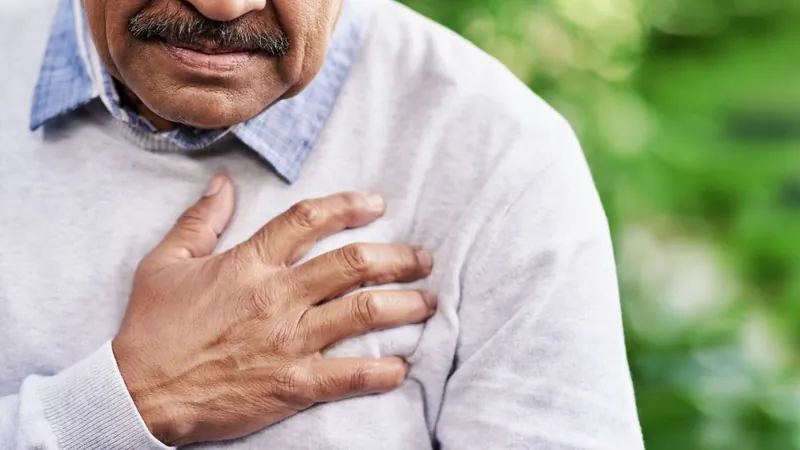
The Shocking Truth About Broken Heart Syndrome: Why Men Are at Greater Risk of Dying
2025-06-10
Author: Ying
The Dire Consequences of Broken Heart Syndrome
A recent case illuminates the dangers of broken heart syndrome, or takotsubo cardiomyopathy, revealing that men may face a higher risk than previously thought. A 59-year-old man, already grappling with the aftermath of bladder cancer, suffered a terrifying episode of chest pain and shortness of breath right before a scheduled procedure. Behind the facade of strength for his family lay crippling anxiety over his health, which likely contributed to this life-threatening condition.
Understanding Takotsubo Cardiomyopathy
Takotsubo cardiomyopathy is a rare yet critical heart condition triggered by extreme emotional or physical stressors. This can range from the death of a loved one to lifting heavy objects. In this syndrome, the heart muscle is overwhelmed by stress hormones, causing portions of it to become unable to function, mimicking a heart attack with symptoms like chest pain and irregular heartbeats.
Staggering Statistics: Men vs. Women
New findings from the Journal of the American Heart Association indicate alarming trends: while women represent about 83% of takotsubo cases, men with the syndrome are over twice as likely to die from it, exhibiting a staggering mortality rate of 11.2%. Dr. Mohammad Reza Movahed, a key researcher, emphasizes that this disparity raises urgent questions to explore further.
The Biology Behind the Risk
Experts suggest that hormonal differences could explain why men are more severely affected. During times of stress, the body releases catecholamines, stress hormones that can overwhelm heart tissue. Men may produce higher levels, resulting in more intense cases of takotsubo. In contrast, estrogen in women may provide a protective effect against such severe complications.
Social Dynamics and Misdiagnosis
Social conditioning also plays a role. Many doctors associate takotsubo primarily with women, which may lead to overlooked diagnoses in men. This misdiagnosis can delay critical care, worsening outcomes for male patients. Moreover, men might ignore their symptoms longer, believing they can manage them alone.
The Dangers of Ignoring Symptoms
Left untreated, takotsubo cardiomyopathy can lead to graver complications like blood clots, stroke, and heart failure. However, with prompt medical attention, treatment can restore heart function and facilitate recovery within weeks. Each second counts—Dr. Deepak Bhatt notes the importance of treating severe symptoms as emergencies.
The Need for Further Research
The study sheds light on necessary variables, yet many unanswered questions linger. Factors like chronic diseases, comorbid conditions, and even the impact of COVID-19 infections remain under-explored. A closer examination of these trends is essential to provide effective treatments that could significantly decrease the mortality gap between men and women suffering from takotsubo.
Essential Advice: Don't Tough It Out!
Awareness is crucial—recognizing the signs and symptoms of broken heart syndrome can be life-saving. Dr. Bhatt urges immediate action for severe chest pain or shortness of breath. Ignoring these warning signs could lead to unnecessary risk. Managing chronic stress through practices like meditation and exercise may also bolster overall heart health and prevent future incidents.


 Brasil (PT)
Brasil (PT)
 Canada (EN)
Canada (EN)
 Chile (ES)
Chile (ES)
 Česko (CS)
Česko (CS)
 대한민국 (KO)
대한민국 (KO)
 España (ES)
España (ES)
 France (FR)
France (FR)
 Hong Kong (EN)
Hong Kong (EN)
 Italia (IT)
Italia (IT)
 日本 (JA)
日本 (JA)
 Magyarország (HU)
Magyarország (HU)
 Norge (NO)
Norge (NO)
 Polska (PL)
Polska (PL)
 Schweiz (DE)
Schweiz (DE)
 Singapore (EN)
Singapore (EN)
 Sverige (SV)
Sverige (SV)
 Suomi (FI)
Suomi (FI)
 Türkiye (TR)
Türkiye (TR)
 الإمارات العربية المتحدة (AR)
الإمارات العربية المتحدة (AR)